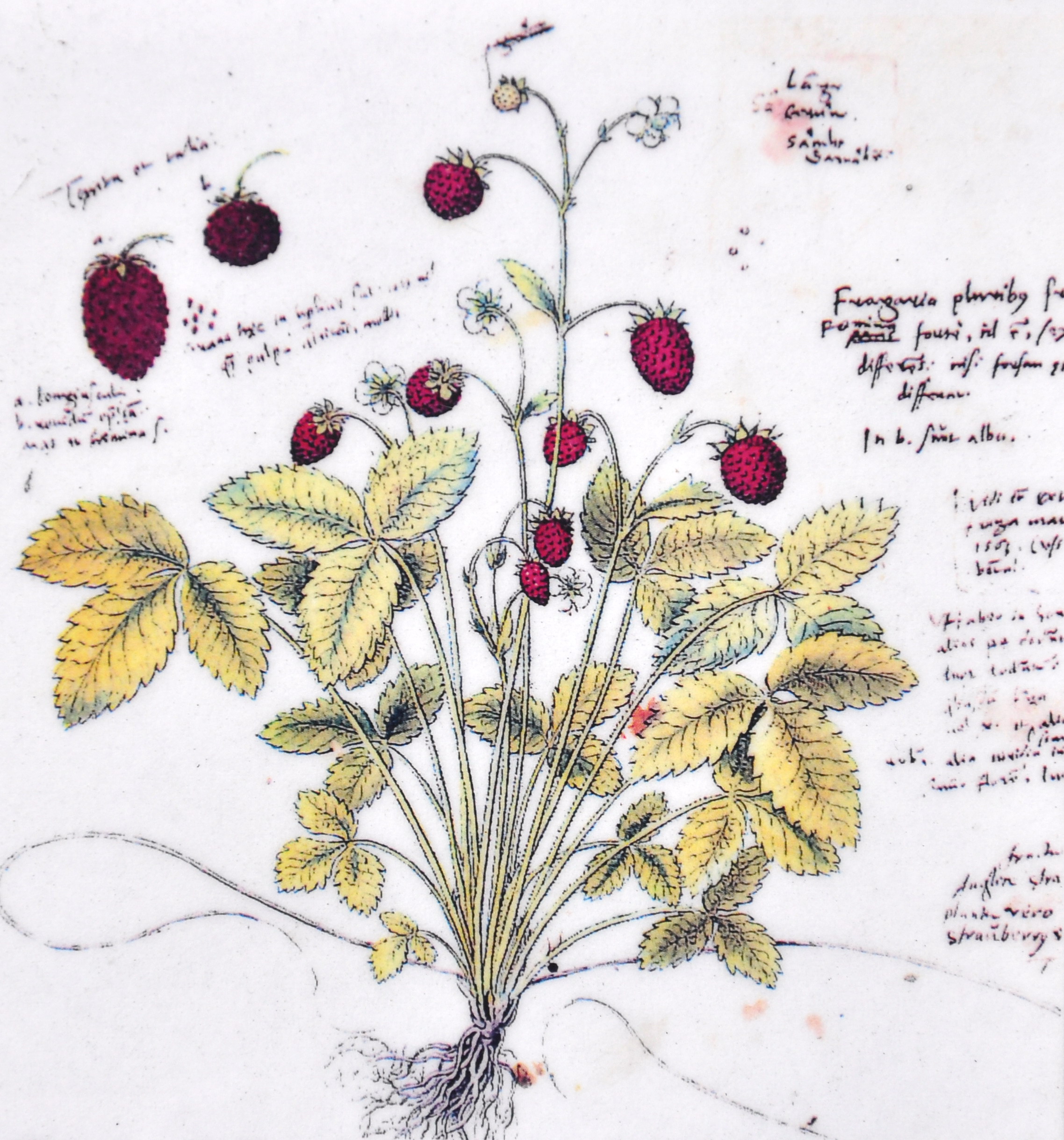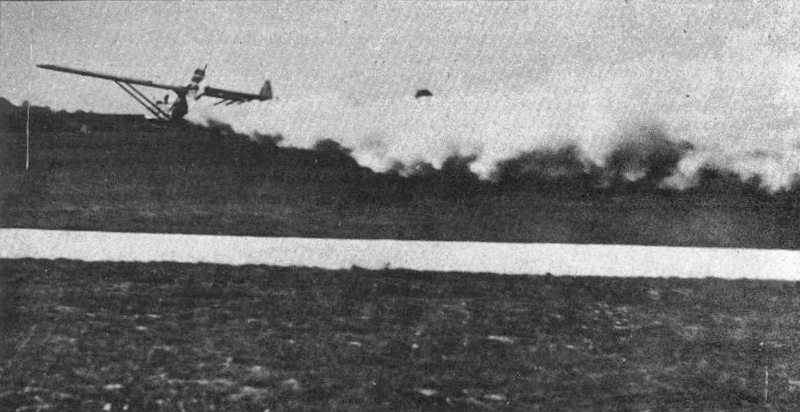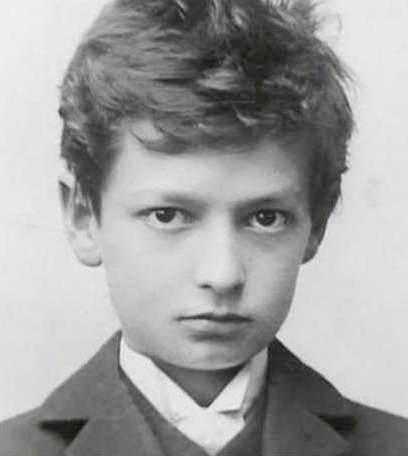|
Willy Ley
Willy Otto Oskar Ley (October 2, 1906 – June 24, 1969) was a German and American science writer and proponent of space exploration and cryptozoology. The crater Ley on the far side of the Moon is named in his honor. Early life and Berlin years Willy Otto Oskar Ley was the son of Julius Otto Ley, a traveling merchant, and Frida May, the daughter of a Lutheran sexton. Ley grew up in his native Berlin during the First World War under the supervision of two aunts. When war erupted, his father was in Great Britain and consequently spent the remainder of the war at a detention camp on the Isle of Man. Meanwhile, his mother worked as a milliner in a distant city in Germany. As Ley later recalled he "grew up, so to speak, in the shadow of the Museum of Natural History in Berlin".Willy Ley, Exotic Zoology, vii When his school teacher asked him to compose an essay on the subject "What Do I Want to Be When I Am Grown and Why?", Ley responded: "I want to be an explorer." At the U ... [...More Info...] [...Related Items...] OR: [Wikipedia] [Google] [Baidu] |
Heinz Haber
Heinz Haber (May 15, 1913 in Mannheim – February 13, 1990 in Hamburg) was a German physicist and science writer who primarily became known for his TV programs and books about physics and environmental subjects. His lucid style of explaining hard science has frequently been imitated by later popular science presenters in Germany. Biography Heinz Haber was born in 1913. His father, Carl Haber, was director of "Süddeutsche Zucker AG", now known as Südzucker. His older brother Fritz Haber was an Aerospace engineer. He started studying physics in Leipzig, Heidelberg and Berlin 1932. In 1933, the year of its formation, he joined the German Air Sports Association, an organization set up by the Nazi Party that allowed him to learn flying as a fighter pilot. In 1934, he interrupted his studies to volunteer in the German Airforce, Luftwaffe, partaking in several deployments. At the end of this part of his military service he was promoted to ltd. of the reserve. He continued his s ... [...More Info...] [...Related Items...] OR: [Wikipedia] [Google] [Baidu] |
Astronomy
Astronomy is a natural science that studies celestial objects and the phenomena that occur in the cosmos. It uses mathematics, physics, and chemistry in order to explain their origin and their overall evolution. Objects of interest include planets, natural satellite, moons, stars, nebulae, galaxy, galaxies, meteoroids, asteroids, and comets. Relevant phenomena include supernova explosions, gamma ray bursts, quasars, blazars, pulsars, and cosmic microwave background radiation. More generally, astronomy studies everything that originates beyond atmosphere of Earth, Earth's atmosphere. Cosmology is a branch of astronomy that studies the universe as a whole. Astronomy is one of the oldest natural sciences. The early civilizations in recorded history made methodical observations of the night sky. These include the Egyptian astronomy, Egyptians, Babylonian astronomy, Babylonians, Greek astronomy, Greeks, Indian astronomy, Indians, Chinese astronomy, Chinese, Maya civilization, M ... [...More Info...] [...Related Items...] OR: [Wikipedia] [Google] [Baidu] |
Conrad Gessner
Conrad Gessner (; ; 26 March 1516 – 13 December 1565) was a Swiss physician, naturalist, bibliographer, and philologist. Born into a poor family in Zürich, Switzerland, his father and teachers quickly realised his talents and supported him through university, where he studied classical languages, theology and medicine. He became Zürich's city physician, but was able to spend much of his time on collecting, research and writing. Gessner compiled monumental works on bibliography ('' Bibliotheca universalis'' 1545–1549) and zoology ( 1551–1558) and was working on a major botanical text at the time of his death from plague at the age of 49. He is regarded as the father of modern scientific bibliography, zoology and botany. He was frequently the first to describe species of plants or animals in Europe, such as the tulip in 1559. A number of plants and animals have been named after him. Life Conrad Gessner was born on 26 March 1516, in Zürich, Switzerland, the son of Ursus ... [...More Info...] [...Related Items...] OR: [Wikipedia] [Google] [Baidu] |
Great Depression
The Great Depression was a severe global economic downturn from 1929 to 1939. The period was characterized by high rates of unemployment and poverty, drastic reductions in industrial production and international trade, and widespread bank and business failures around the world. The economic contagion began in 1929 in the United States, the largest economy in the world, with the devastating Wall Street stock market crash of October 1929 often considered the beginning of the Depression. Among the countries with the most unemployed were the U.S., the United Kingdom, and Weimar Republic, Germany. The Depression was preceded by a period of industrial growth and social development known as the "Roaring Twenties". Much of the profit generated by the boom was invested in speculation, such as on the stock market, contributing to growing Wealth inequality in the United States, wealth inequality. Banks were subject to laissez-faire, minimal regulation, resulting in loose lending and wides ... [...More Info...] [...Related Items...] OR: [Wikipedia] [Google] [Baidu] |
Woman In The Moon
''Woman in the Moon'' (German language, German ''Frau im Mond'') is a German science fiction silent film that premiered 15 October 1929 at the UFA-Palast am Zoo cinema in Berlin to an audience of 2,000. It is often considered to be one of the first "serious" science fiction films. A gallery of behind-the-scenes shots of movies featuring space travel or aliens. Page 68, photo caption: "Directed by Fritz Lang (third from right), the silent film ''Woman in the Moon'' (1929) is considered one of the first serious science fiction films and invented the countdown before the launch of a rocket. Many of the basics of space travel were presented to a mass audience for the first time." It was directed by Fritz Lang, and written by his wife Thea von Harbou, based on her 1928 novel ''The Rocket to the Moon (novel), The Rocket to the Moon''. It was released in the US as ''By Rocket to the Moon'' and in the UK as ''Girl in the Moon''. The basics of rocket travel were presented to a mass audie ... [...More Info...] [...Related Items...] OR: [Wikipedia] [Google] [Baidu] |
Fritz Lang
Friedrich Christian Anton Lang (; December 5, 1890 – August 2, 1976), better known as Fritz Lang (), was an Austrian-born film director, screenwriter, and producer who worked in Germany and later the United States.Obituary ''Variety Obituaries, Variety'', August 4, 1976, p. 63. One of the best-known ''émigrés'' from Germany's school of German expressionist cinema, Expressionism, he was dubbed the "Master of Darkness" by the British Film Institute. He has been cited as one of the most influential filmmakers of all time. Lang's work spans five decades, from the Expressionist silent films of his first German creative period to his short stay in Paris and his work as a Hollywood director to his last three films made in Germany. Lang's most celebrated films include the futuristic science-fiction film ''Metropolis (1927 film), Metropolis'' (1927) and the influential ''M (1931 film), M'' (1931), a film noir precursor. His 1929 film ''Woman in the Moon'' showcased the use of a mult ... [...More Info...] [...Related Items...] OR: [Wikipedia] [Google] [Baidu] |
Wunderwaffe
''Wunderwaffe'' () is a German word that roughly translates to "wonder-weapon" and was a term assigned during World War II by Nazi Germany's propaganda ministry to some revolutionary "superweapons". Most of these weapons however remained prototypes, which either never reached the combat theater, or if they did, were too late or in too insignificant numbers to have a military effect. The V-weapons, which were developed earlier and saw considerable deployment, especially against London and Antwerp, trace back to the same pool of armament concepts. In the German language, the term ''Wunderwaffe'' now generally refers to a universal solution which solves all problems related to a particular issue, mostly used ironically for its illusionary nature. As the war situation worsened for Germany from 1942, claims about the development of revolutionary new weapons which could turn the tide became an increasingly prominent part of the propaganda directed at Germans by their government. ... [...More Info...] [...Related Items...] OR: [Wikipedia] [Google] [Baidu] |
Fritz Von Opel
Fritz Adam Hermann von Opel (4 May 1899 – 8 April 1971), known as Fritz Adam Hermann Opel until his father was ennobled in 1917, was the only son of Wilhelm von Opel and a grandson of Adam Opel, founder of the Opel company. He is remembered mostly for his Opel RAK demonstrations of the world's first crewed rocket-powered ground and air vehicles that earned him the nickname "Rocket Fritz" and which were also highly effective as publicity stunts for his family's automotive business. Life and career Opel was born in Rüsselsheim. He studied at the Technische Universität Darmstadt and received his doctorate from the university. After graduation, he was made director of testing for the Opel company and also put in charge of publicity. Fritz von Opel was a grandson of Adam Opel and son of Wilhelm von Opel. His sister was Elinor von Opel, a cousin Georg von Opel. When his father Wilhelm was raised to hereditary nobility in 1917, his descendants were also ennobled. In 1929 he ma ... [...More Info...] [...Related Items...] OR: [Wikipedia] [Google] [Baidu] |
Max Valier
Max Valier (9 February 1895 – 17 May 1930) was an Austrian rocketry pioneer. He was a leading figure in the world's first large-scale rocket program, Opel-RAK, and helped found the German ''Verein für Raumschiffahrt'' (VfR – "Spaceflight Society") that would bring together many of the minds that would later make spaceflight a reality in the 20th century. Biography Valier was born in Bozen in the County of Tyrol (now South Tyrol) and in 1913 enrolled to study physics at the University of Innsbruck. He also trained as a machinist at a nearby factory. His studies were interrupted by the First World War, during which he served in the Austro-Hungarian army's air corps as an aerial observer. After the war, Valier did not return to his studies, but became a freelance science writer. In 1923, he read Hermann Oberth's landmark book '' Die Rakete zu den Planetenräumen'' (''The Rocket into Interplanetary Space'') and was inspired to write a similar work to explain Oberth's ideas ... [...More Info...] [...Related Items...] OR: [Wikipedia] [Google] [Baidu] |
Verein Für Raumschiffahrt
The Verein für Raumschiffahrt ("''VfR''", ) was a German amateur rocket association prior to World War II that included members outside Germany. The first successful VfR test firing with liquid fuel (five minutes) was conducted by Max Valier at the Heylandt Works on January 25, 1930; and additional rocket experiments were conducted at a farm near Bernstadt, Saxony. Space travel and rocketry gained popularity in Germany after the June 1923 publication of Herman Oberth's book '' Die Rakete zu den Planetenräumen'' () and the expanded 1929 work '' Wege zur Raumschiffahrt'' (''Ways to Spaceflight''). The VfR was founded in 1927 by Johannes Winkler, with Max Valier and Willy Ley after their participation as expert advisers for Fritz Lang's early science fiction film '' Frau im Mond'' (''The Woman in the Moon''). Ley and Hermann Oberth had hoped to receive funding from Lang for a real-life experimental rocket launch coinciding with the movie's premiere. Valier had assisted in ... [...More Info...] [...Related Items...] OR: [Wikipedia] [Google] [Baidu] |
Die Rakete Zu Den Planetenräumen
Die, as a verb, refers to death, the cessation of life. Die may also refer to: Games * Die, singular of dice, small throwable objects used for producing random numbers Manufacturing * Die (integrated circuit), a rectangular piece of a semiconductor wafer * Die (manufacturing), a material-shaping device * Die (philately) * Coin die, a metallic piece used to strike a coin * Die casting, a material-shaping process ** Sort (typesetting), a cast die for printing * Die cutting (web), process of using a die to shear webs of low-strength materials * Die, a tool used in paper embossing * Tap and die, cutting tools used to create screw threads in solid substances * Tool and die, the occupation of making dies Arts and media Music * ''Die'' (album), the seventh studio album by rapper Necro * Die (musician), Japanese musician, guitarist of the band Dir en grey * DJ Die, British DJ and musician with Reprazent * "DiE", a 2013 single by the Japanese idol group BiS * die!, an inactive Ge ... [...More Info...] [...Related Items...] OR: [Wikipedia] [Google] [Baidu] |
Hermann Oberth
Hermann Julius Oberth (; 25 June 1894 – 28 December 1989) was an Austria-Hungary, Austro-Hungarian-born German physicist and rocket pioneer of Transylvanian Saxons, Transylvanian Saxon descent. Oberth supported Nazi Germany's war effort and received the War Merit Cross, War Merit Cross (1st Class) in 1943.'''' Early life Oberth was born into a Transylvanian Saxons, Transylvanian Saxon family in Nagyszeben (Hermannstadt), Kingdom of Hungary (today Sibiu in Romania); and besides his native German language, German, he was fluent in Hungarian language, Hungarian and Romanian language, Romanian as well. At the age of 11, Oberth's interest in rocketry was sparked by the novels of Jules Verne, especially ''From the Earth to the Moon'' and ''Around the Moon''. He was fond of reading them over and over until they were engraved in his memory. As a result, Oberth constructed his first model rocket as a school student at the age of 14. In his youthful experiments, he arrived independentl ... [...More Info...] [...Related Items...] OR: [Wikipedia] [Google] [Baidu] |









